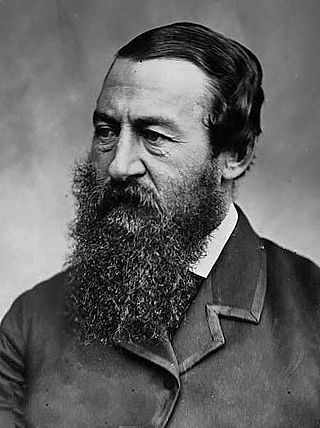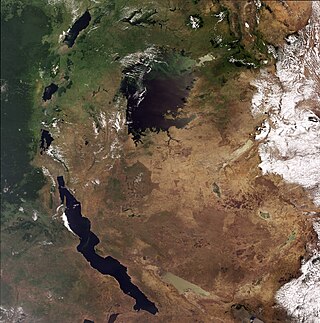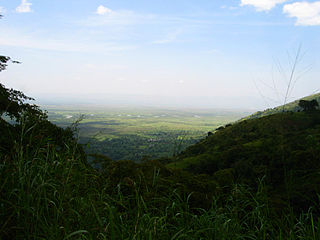
This is a very short list of rivers in Uganda. [1] This list is arranged by drainage basin, with respective tributaries indented under each larger stream's name.

This is a very short list of rivers in Uganda. [1] This list is arranged by drainage basin, with respective tributaries indented under each larger stream's name.


Lake Victoria is one of the African Great Lakes. With a surface area of approximately 59,947 km2 (23,146 sq mi), Lake Victoria is Africa's largest lake by area, the world's largest tropical lake, and the world's second-largest fresh water lake by surface area after Lake Superior in North America. In terms of volume, Lake Victoria is the world's ninth-largest continental lake, containing about 2,424 km3 (1.965×109 acre⋅ft) of water. Lake Victoria occupies a shallow depression in Africa. The lake has an average depth of 40 m (130 ft) and a maximum depth of 80–81 m (262–266 ft). Its catchment area covers 169,858 km2 (65,583 sq mi). The lake has a shoreline of 7,142 km (4,438 mi) when digitized at the 1:25,000 level, with islands constituting 3.7% of this length.

Sir Samuel White Baker was an English explorer, officer, naturalist, big game hunter, engineer, writer and abolitionist. He also held the titles of Pasha and Major-General in the Ottoman Empire and Egypt. He served as the Governor-General of the Equatorial Nile Basin between April 1869 and August 1873, which he established as the Province of Equatoria. He is mostly remembered as the first European to visit Lake Albert, as an explorer of the Nile and interior of central Africa, and for his exploits as a big game hunter in Asia, Africa, Europe and North America. Baker wrote a considerable number of books and published articles. He was a friend of King Edward VII, who as Prince of Wales, visited Baker with Queen Alexandra in Egypt. Other friendships were with explorers Henry Morton Stanley, Roderick Murchison, John H. Speke and James A. Grant, with the ruler of Egypt Pasha Ismail The Magnificent, Major-General Charles George Gordon and Maharaja Duleep Singh.

The White Nile is a river in Africa, the minor of the two main tributaries of the Nile, the larger being the Blue Nile. The name "White" comes from the clay sediment carried in the water that changes the water to a pale color.

Lake Albert, originally known as Lake Mwitanzige by the Banyoro, Nam Ovoyo Bonyo by the Alur, and temporarily as Lake Mobutu Sese Seko, is a lake located in Uganda and the Democratic Republic of the Congo. It is Africa's seventh-largest lake, as well as the second biggest of Uganda's Great Lakes.

Lake Edward is one of the smaller African Great Lakes. It is located in the Albertine Rift, the western branch of the East African Rift, on the border between the Democratic Republic of the Congo (DRC) and Uganda, with its northern shore a few kilometres south of the equator.

The African Great Lakes are a series of lakes constituting the part of the Rift Valley lakes in and around the East African Rift. The series includes Lake Victoria, the second-largest freshwater lake in the world by area; Lake Tanganyika, the world's second-largest freshwater lake by volume and depth; Lake Malawi, the world's eighth-largest freshwater lake by area; and Lake Turkana, the world's largest permanent desert lake and the world's largest alkaline lake. Collectively, they contain 31,000 km3 (7,400 cu mi) of water, which is more than either Lake Baikal or the North American Great Lakes. This total constitutes about 25% of the planet's unfrozen surface fresh water. The large rift lakes of Africa are the ancient home of great biodiversity, and 10% of the world's fish species live in this region.

The Albertine Rift is the western branch of the East African Rift, covering parts of Uganda, the Democratic Republic of the Congo (DRC), Rwanda, Burundi and Tanzania. It extends from the northern end of Lake Albert to the southern end of Lake Tanganyika. The geographical term includes the valley and the surrounding mountains.

Semliki River is a major river, 140 kilometres (87 mi) long, in the Democratic Republic of the Congo (DRC) and Uganda in Central and East Africa. It flows north from Lake Edward in Beni Territory, Nord-Kivu, D.R.C avoiding the Rwenzori Mountains on its Right (East), emptying into Lake Albert in the Albertine Rift, Irumu Territory, Ituri Province, D.R.C overlooking the Blue Mountains to its left in the west. Its mouth is near the Village of Katolingo in Kanara subcounty, Ntoroko district, Uganda. Along its lower reaches, it meanders extensively forming part of the international border between the DRC and the western Ugandan districts of Bundibugyo and Ntoroko, near the Semuliki National Park.

The wildlife of Uganda is composed of its flora and fauna. Uganda has a wide variety of different habitats, including mountains, hills, tropical rainforest, woodland, freshwater lakes, swamps and savanna with scattered clumps of trees. The country has a biodiverse flora and fauna reflecting this range of habitats and is known for its primates, including gorillas and chimpanzees. There are ten national parks and thirteen wildlife reserves; some 345 species of mammal and 1020 species of bird have been recorded in the country.

The Lake Victoria squeaker is a species of upside-down catfish that is native to Kenya, Burundi, Tanzania and Uganda where it is found in Lakes Kioga and Victoria and the Victorian Nile in the lower Kagera River and the Malagarasi River drainage. It was first described by British-Belgian zoologist George Albert Boulenger in 1906, from specimens collected in the Lake Victoria at Buganga, Uganda and Entebbe, Uganda by Mr. E. Degen. The species name victoriae is derived from the location where the species was originally discovered, Lake Victoria.

There are two major sources of fish in Uganda; one is from aquaculture, the other from fishing in rivers and lakes. The latter has made up the largest and most significant share of all fishing. Open water covers 15.3 percent of Uganda's surface and comprises five major lakes which are the main sources of fish in the country. Lake Victoria continues to be the most important water body in Uganda both in size and contribution to the total fish catch, followed by Lake Albert and Lake Kyoga.

Masindi Port is a town in the Western Region of Uganda. The name also applied to the sub-county, where the own sits and forms the sub-county headquarters.

River Kafu is a river in Uganda, in East Africa. On some older maps, the river is labelled as River Kabi.
The Murchison Semliki Landscape is a conservation priority landscape situated east of Lake Albert in western Uganda. Species of conservation concern are chimpanzee, elephant, crowned eagle, golden cat, Nahan's francolin, Nile crocodile, hippopotamus and lion. Conservation challenges in this region are pressure from the growing population on its natural resources, including immigration from within Uganda and DRC in response to the availability of natural resources, lack of law enforcement, and the prospect of employment in the establishing petroleum industry.

The Semliki Wildlife Reserve is a conservation protected area in the Western Region of Uganda with headquarters at Karugutu in Ntoroko District.It is the oldest wildlife reserve.
There are two major sources of fish in Uganda; one is from aquaculture, the other from fishing in rivers and lakes. Different types of fish flourish in different water sources. The waters of Uganda contain an impressive array of fish species—over 90 in all. This count does not include the Haplochromis complex, which itself is made up of more than 200 species.
Nkusi Hydroelectric Power Station, also referred to as Nkusi Power Station, is a 9.6 MW (12,900 hp) hydroelectric power station in the Western Region of Uganda.

Sir William Edmund Garstin, GCMG, GBE was a British civil engineer. He was responsible for a number of important hydrological and public works in Egypt.